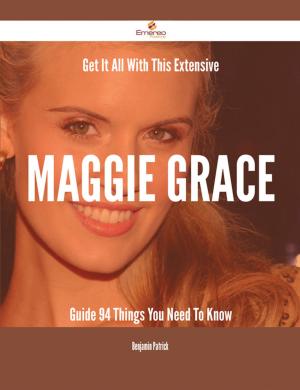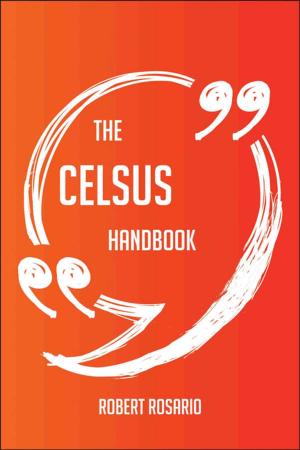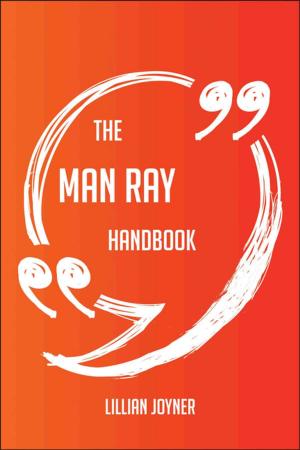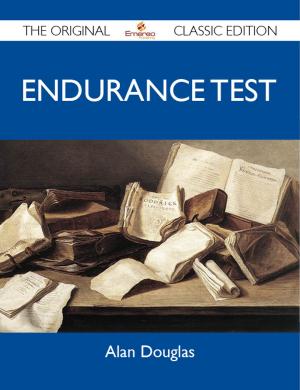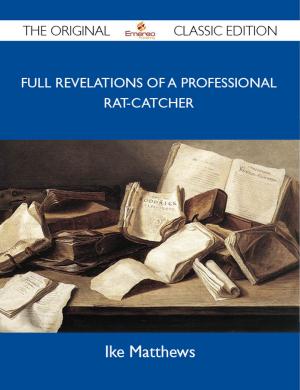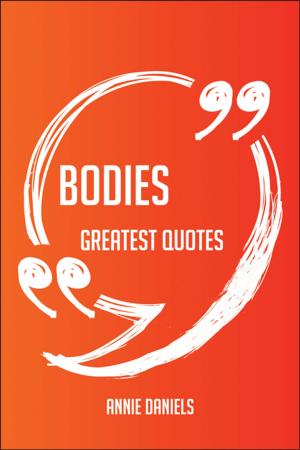Winning Arguments Rule Guide: Explore, Collect, Test, Present and Win - The Original Classic Edition
Nonfiction, Reference & Language, Reference, Fiction & Literature, Classics| Author: | Hays Gardiner | ISBN: | 9781486433971 |
| Publisher: | Emereo Publishing | Publication: | October 24, 2012 |
| Imprint: | Emereo Publishing | Language: | English |
| Author: | Hays Gardiner |
| ISBN: | 9781486433971 |
| Publisher: | Emereo Publishing |
| Publication: | October 24, 2012 |
| Imprint: | Emereo Publishing |
| Language: | English |
Accordingly I have laid out this book in order to start students as soon as possible on the same kind of arguments that they are likely to make in practical life. I have striven throughout to keep in mind the interests and needs of these average individuals, who in the aggregate will tread such a variety of paths in their passage through the world. Not many of them will get to Congress, there to make great orations on the settlement of the tariff, and the large majority of them will not go into the law; and even of the lawyers many will have little concern with the elaborate piecing together of circumstantial evidence into the basis for a verdict. But all of them will sooner or later need the power of coming to close quarters with more or less complicated questions, in which they must bring over to their views men of varying prepossessions and practical interests; and all of them all their lives will need the power of seeing through to the heart of such questions, and of grasping what is essential, though it be separated by a hair's breadth from the inessential that must be cast to one side. It is for this training of the powers of thought that a course in the making of arguments is profitable, even when pursued for so short a time as can be given to it in most schools and colleges.
In laying out the book I have had these three purposes in mind: first, that the student shall without waste of time be set to exploring his subject and running down the exact issues on which his question will tarn; second, that as he collects his material he shall be led on to consider what part of it is good evidence for his purpose, and how to test his reasoning from the facts; third, that with his material gathered and culled and his plan settled he shall turn his attention to presenting it in the most effective way possible for the particular occasion.
Throughout I have tried to lay stress on the making of arguments, not as an end in themselves, and to fit certain more or loss arbitrary formulas, but as the practical kind of appeal that every young man is already making to his fellows on matters that interest him, and that he will make more and more in earnest as he gets out into the world. The tendency of some of the books to treat argumentation, especially in the form of debating, as a new variety of sport, with rules as elaborate and technical as those of football, turns away from the subject a good many young men to whom the training in itself would be highly valuable. The future of the subject will be closely dependent on the success of teachers in keeping it flexible and in intimate touch with real affairs. I have made some suggestions looking towards this end in Appendix II.
My obligations to earlier workers in the field will be obvious to all who know the subject. In especial, I, like all other writers on the subject, have built on foundations laid by Professor George Pierce Baker, of Harvard University.
Accordingly I have laid out this book in order to start students as soon as possible on the same kind of arguments that they are likely to make in practical life. I have striven throughout to keep in mind the interests and needs of these average individuals, who in the aggregate will tread such a variety of paths in their passage through the world. Not many of them will get to Congress, there to make great orations on the settlement of the tariff, and the large majority of them will not go into the law; and even of the lawyers many will have little concern with the elaborate piecing together of circumstantial evidence into the basis for a verdict. But all of them will sooner or later need the power of coming to close quarters with more or less complicated questions, in which they must bring over to their views men of varying prepossessions and practical interests; and all of them all their lives will need the power of seeing through to the heart of such questions, and of grasping what is essential, though it be separated by a hair's breadth from the inessential that must be cast to one side. It is for this training of the powers of thought that a course in the making of arguments is profitable, even when pursued for so short a time as can be given to it in most schools and colleges.
In laying out the book I have had these three purposes in mind: first, that the student shall without waste of time be set to exploring his subject and running down the exact issues on which his question will tarn; second, that as he collects his material he shall be led on to consider what part of it is good evidence for his purpose, and how to test his reasoning from the facts; third, that with his material gathered and culled and his plan settled he shall turn his attention to presenting it in the most effective way possible for the particular occasion.
Throughout I have tried to lay stress on the making of arguments, not as an end in themselves, and to fit certain more or loss arbitrary formulas, but as the practical kind of appeal that every young man is already making to his fellows on matters that interest him, and that he will make more and more in earnest as he gets out into the world. The tendency of some of the books to treat argumentation, especially in the form of debating, as a new variety of sport, with rules as elaborate and technical as those of football, turns away from the subject a good many young men to whom the training in itself would be highly valuable. The future of the subject will be closely dependent on the success of teachers in keeping it flexible and in intimate touch with real affairs. I have made some suggestions looking towards this end in Appendix II.
My obligations to earlier workers in the field will be obvious to all who know the subject. In especial, I, like all other writers on the subject, have built on foundations laid by Professor George Pierce Baker, of Harvard University.



